On Feb. 10, 2015, The American Civil Liberties Union of Colorado filed a class action lawsuit challenging an anti-panhandling ordinance that is being widely enforced by Fort Collins, in violation of the free speech rights of people who are impoverished and homeless, as well as street performers and non-profit canvassers.
Fort Collins police have issued “dozens and dozens” of citations, vigorously enforcing an unconstitutional law that criminalizes peaceful, non-threatening speech and expression, including silent requests for charity from solicitors who simply display a sign asking for help.
Our clients include four individuals who are homeless. They represent a class of people who want to engage in peaceful requests for charity in Fort Collins.
Our clients also include Nancy York, a 76-year-old resident of Fort Collins. Because she is over 60, York is classified as “at risk” by the law and therefore cannot be approached by people or organizations requesting charity. She objects to the classification and believes that she is fully capable of deciding for herself whether or not to make a donation to a person or an organization.
Read more about our Fort Collins clients:
Lawrence Beall did not expect to spend his retirement on the streets. But when his former employer was bought by another corporation, his pension was cut to $500/month and he found himself unable to pay rent. To make ends meet, he began panhandling in Old Town Fort Collins, an activity he dislikes and finds embarrassing, but necessary. To avoid sleeping outside on frigid winter nights, Larry uses money he gets from panhandling to buy food and coffee at all-night coffee shops so that he can stay warm.
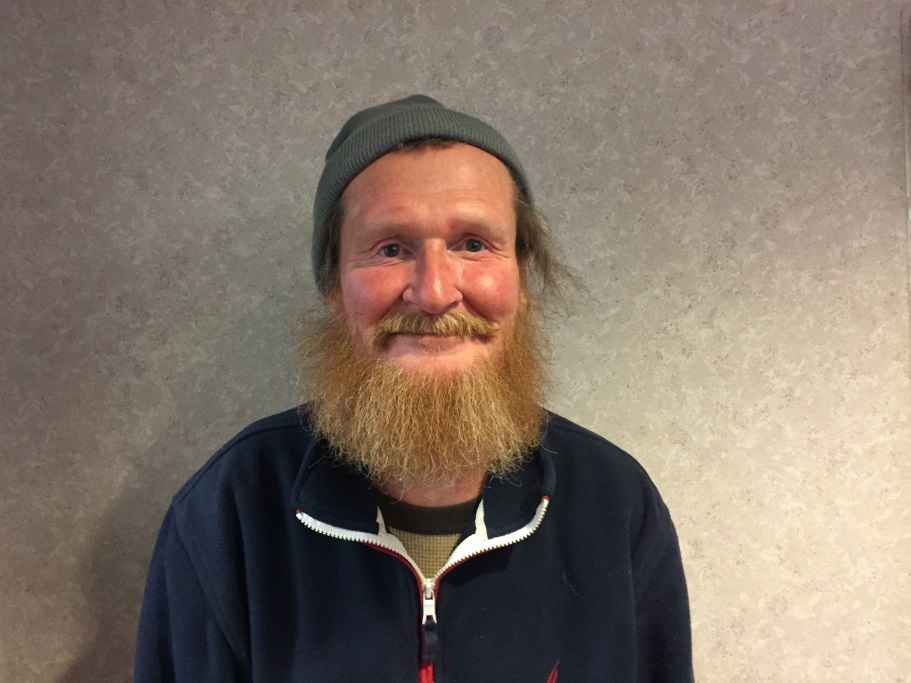
Every day, Larry is forced to choose between violating the law or going hungry and cold. He’s found that people leaving bars and restaurants in the evening are more likely to give him a couple quarters, as are people stepping out of their cars — who often have loose change in the vehicle — but Fort Collins panhandling law forbids him from asking for help in these circumstances. Larry is very careful to respect the personal space of those he asks for help and is always gracious and thankful to those he approaches.
“Bicycle Larry,” as he’s known, tries to show his appreciation for strangers’ generosity by paying it forward in whatever ways he can, often by fixing bikes for other homeless people.
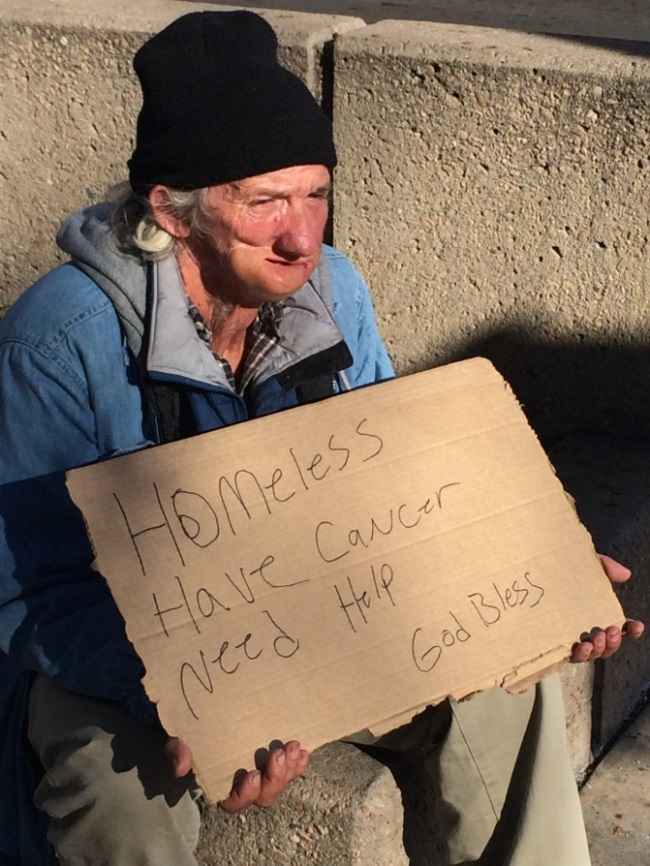
Needing help but not wanting to be obtrusive, Jeff spends many days sitting quietly on a low concrete wall or bench in downtown Fort Collins, where outdoor cafes and banks are nearby, with a sign asking for assistance. He makes sure to stay out of pedestrians’ way and treats passersby with kindness and respect, regardless of whether they are able to offer him any spare change. In order to make enough money for the bare necessities, he must sit in an area with a good amount of foot traffic — often within 100 feet of an ATM or outdoor café — and is sometimes forced to panhandle after dark. His polite, unobtrusive requests for assistance violate Fort Collins panhandling ordinance.
Abby Landow doesn’t feel comfortable verbally asking people for aid, so she sits silently on public sidewalks and benches with a sign asking for help, only speaking when she’s spoken to. Despite her unobtrusive panhandling, she’s been told by police repeatedly to “move on” when panhandling and has been ticketed for violating Fort Collins’s ordinance for simply sitting on a public bench and displaying her sign within sight of an outdoor café. Homeless and destitute, Abby can’t afford to pay the fine for violating the ordinance and has therefore often chosen not to panhandle, even though she’s been in desperate need of assistance.
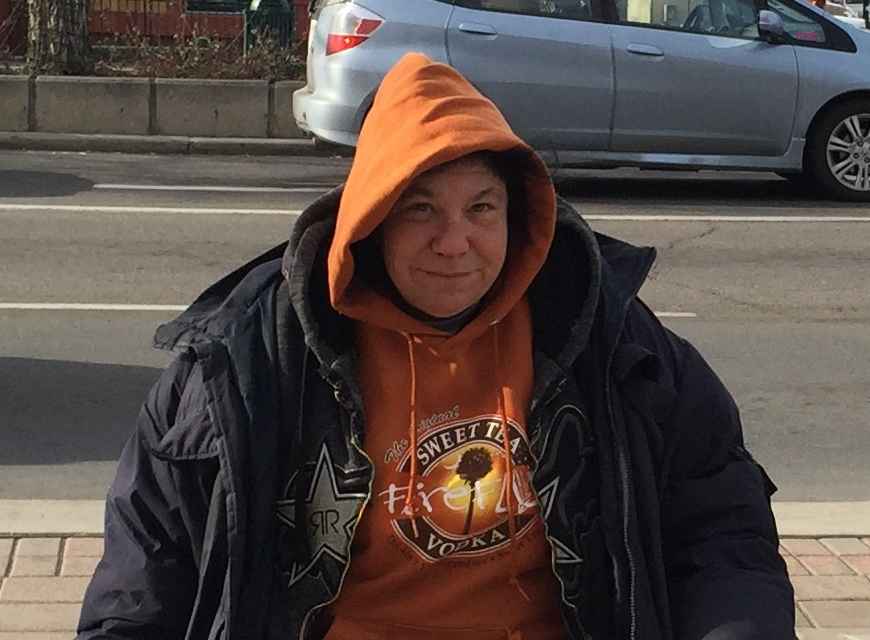
Susan Wymer recently became homeless when she was forced to move out of her Section 8 apartment after the Housing Authority declared her unit unlivable. Her current homelessness and severe health problems, which have rendered her unable to work, have forced her to panhandle in order to pay for life’s necessities such as food and medicine.
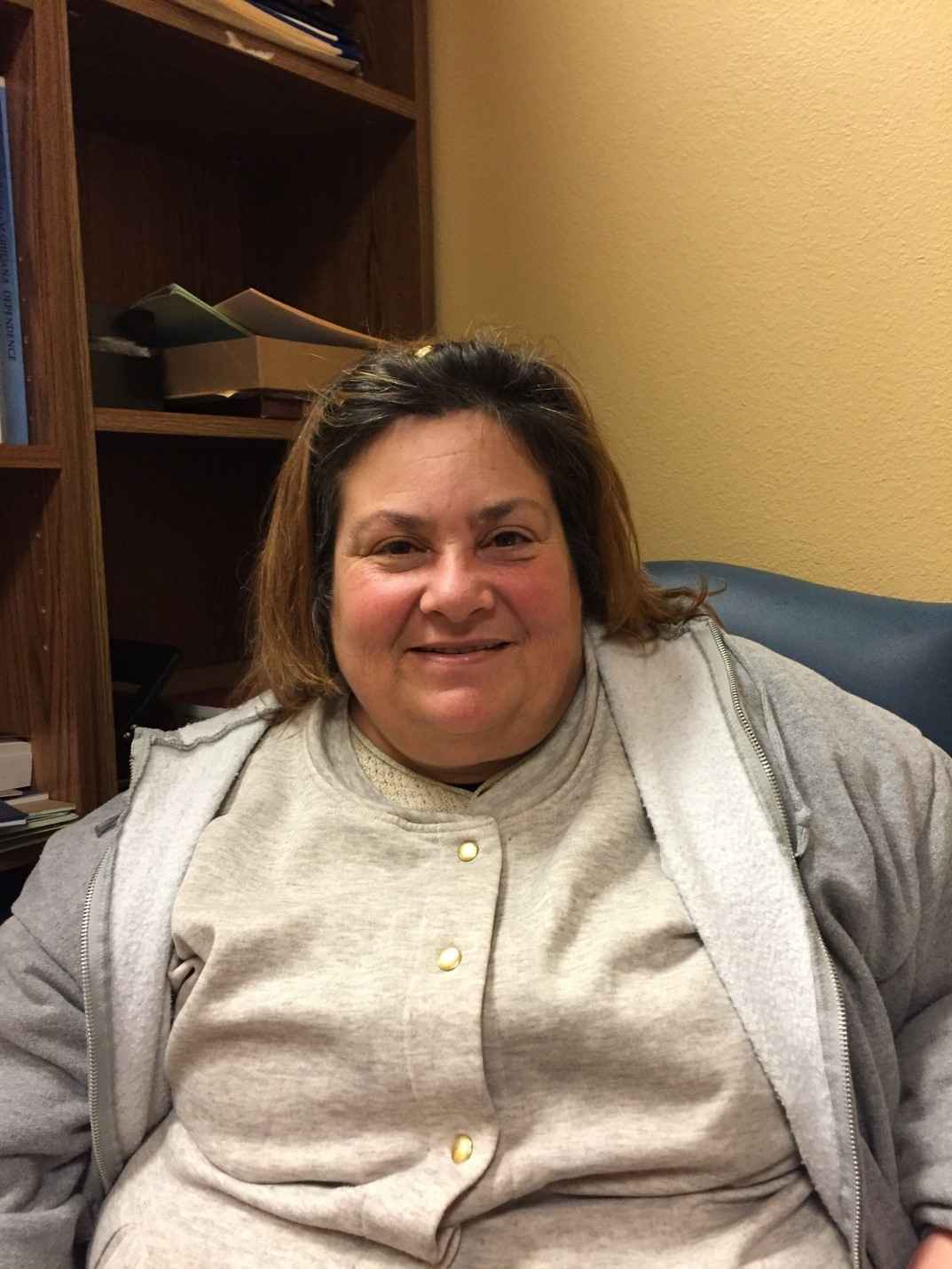
Susan believes the Fort Collins community is generous. She frequently asks for their help by flying a sign near ATMs and outdoor cafés or by using her voice to politely ask for spare change or leftover food. She also holds her sign at night when there’s good foot traffic. Susan is careful to never get in people’s way when she’s asking for help and always expresses gratitude when passersby choose to donate. She has found that many people who are older or disabled, like her, are eager to help. Despite the peaceful nature of her panhandling, the police have told her time and again that the way she panhandles, such as at night and near ATMs, violates the panhandling ordinance. Not wanting any trouble with the police, Susan always follows their directions to move on, even when she desperately needs charity. She’s worried that the ordinance will make her have to choose between courteously asking for help and violating the law.
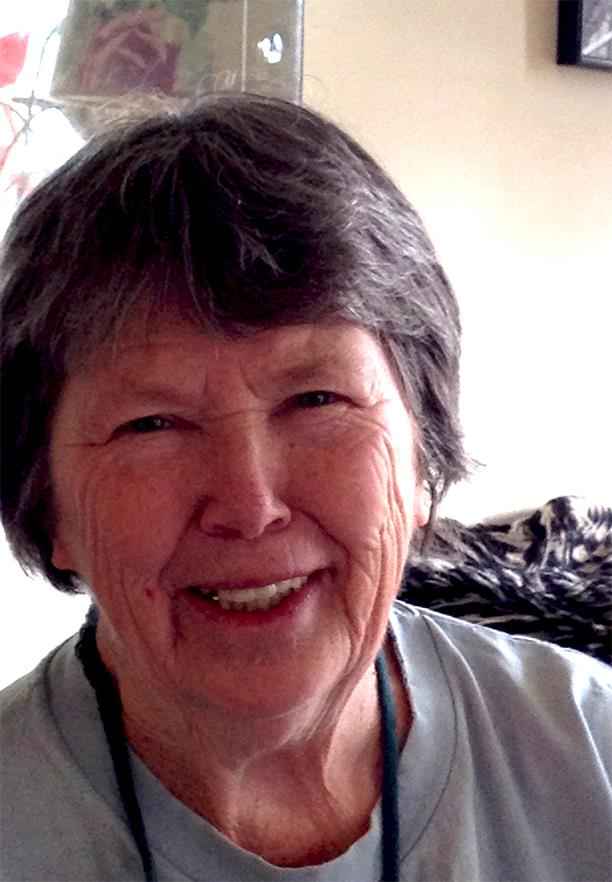
In addition to being insulted by the age restriction of the ordinance, Nancy takes issue with the government’s attempt to push poor people out of sight and keep public spaces open only to those who are well-off. She enjoys talking with those facing poverty and homelessness and believes that everyone has the right to be seen and to ask for help in public places if they need it.
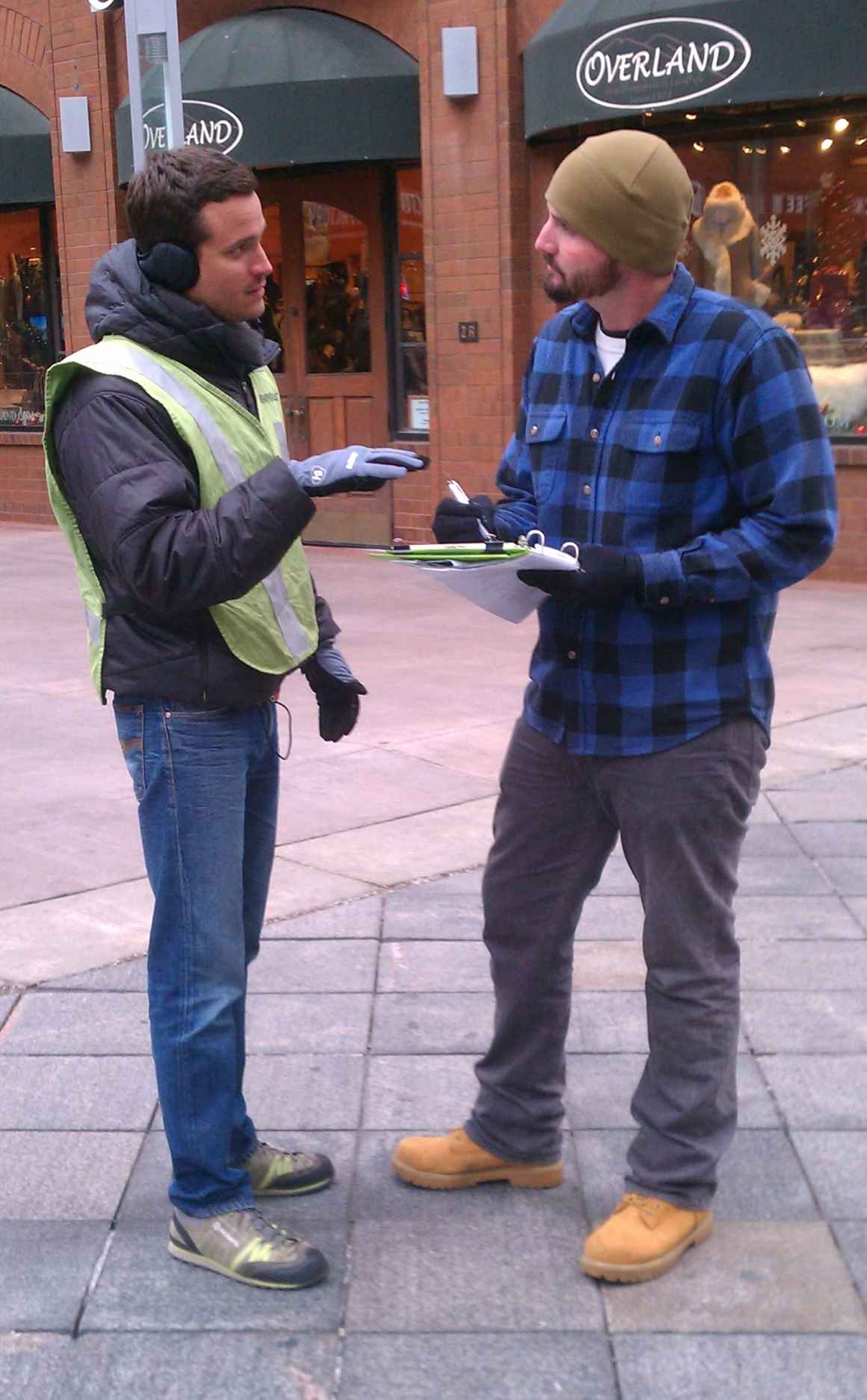
Greenpeace is concerned that canvassers are engaging in behavior that would be banned by Fort Collins’ panhandling ordinance. For example, canvassers are quite often near the many ATMs, bus stops, and outdoor cafes in downtown area. Greenpeace does not want to train its canvassers to discriminate against people who are elderly or disabled, as the panhandling ban would require. After reviewing the text of the panhandling ordinance and learning how the Fort Collins police have enforced the law, Greenpeace fears that its canvassers are at risk of being ticketed and criminally prosecuted.

